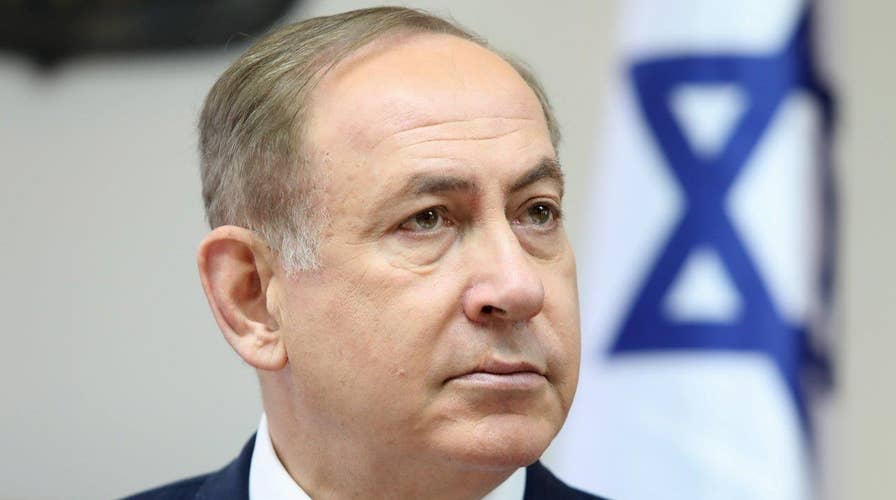President Trump's decision to rain Tomahawk missiles on Syrian airfields in retaliation for a chemical weapons attack being pinned on Damascus followed near-unanimous international condemnation of the Syrian government.
Just hours before the move, the United Kingdom, Australia, Germany, Turkey and even China, whose president, Xi Jinping, was at Trump's estate in Florida, all blasted the Syrian government over its suspected use of chemical weapons this week.
A Chinese government statement expressed "horror" at Tuesday's attack in Khan Sheikhoun that caused "large-scale loss of life."
US LAUNCHES MISSILES INTO SYRIA RESPONSE TO CHEMICAL WEAPONS ATTACK
British Prime Minister Theresa May called the chemical weapons attack that prompted the U.S. action "despicable."
"If it is the case that it has been conducted by the Assad regime, it shows the barbarism of that regime and what I would say is all those who are backing that regime, including Russia, need to use their influence to stop Assad from bombarding and dealing with his people in such a horrific way," May said Thursday.
German Chancellor Angela Merkel on Thursday called the chemical attack "barbaric" and a war crime. Although she said it must be investigated, Merkel said early indications were that Syrian dictator Bashar al-Assad was behind it.
Some 60 Tomahawk missiles, launched from Navy warships in the Mediterranean Sea, fell near Homs, targeting runways, aircraft and fueling facilities, according to Pentagon officials. The strikes came at 3:45 a.m. local time, and were apparently in retaliation for a chemical weapons attack earlier this week that killed scores of civilians, and which Trump blamed on Assad.
Australian Prime Minister Malcolm Turnbull, speaking just one hour before the U.S. action, called the chemical attack a "war crime of the worst sort" that "cries out for a strong response."
SYRIA AIRSTRIKES: TRUMP SAYS MILITARY ACTION IN ‘VITAL NATIONAL SECURITY INTEREST’
In Syria following the attack, state-run television blasted "American aggression." Russia, Assad's ally in the grinding, seven-year civil war, perhaps sensing Trump's first military action, warned earlier of "negative consequences."
"We have to think about negative consequences, negative consequences, and all the responsibility if military action occurred will be on the shoulders of those who initiated such doubtful and tragic enterprise," said Russian Deputy UN envoy Vladimir Safronkov, just hours before the attack.

